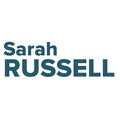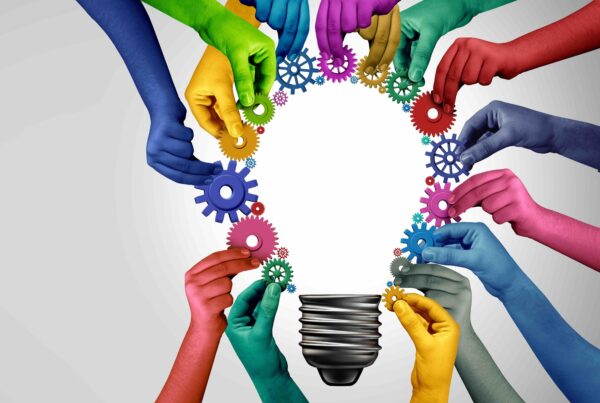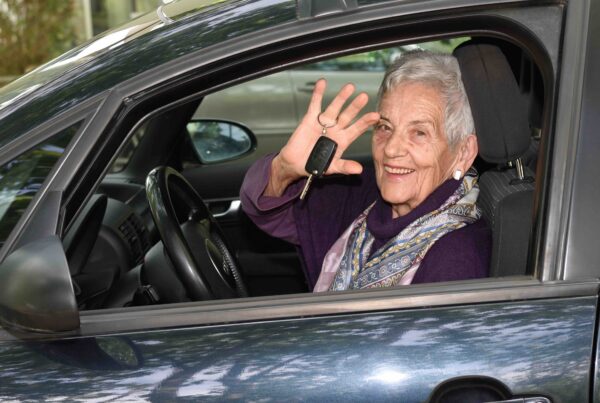At its heart, the proposal to enshrine an Indigenous Voice to parliament in our Constitution is about a desire to improve the social, health and economic outcomes of Indigenous Australians.
The Australian government has a long history of making laws, policies and decisions that directly impact the lives of Indigenous people without any consultation with Indigenous people.
What we are currently witnessing in Alice Springs is a direct result of government decisions taken without consultation with Indigenous people. I saw this lack of consultation when I worked as a registered nurse on Palm Island.
An Indigenous Voice to parliament is needed to end top-down government decision-making. It will enable Aboriginal and Torres Strait Islander people living in urban, rural and regional Australia to provide advice on policies and projects that impact their lives.
Evidence shows that outcomes are improved when governments work in partnership with Indigenous peoples.
Enshrining an Indigenous Voice to parliament in the Constitution provides a way to improve policy and the accountability of future governments. It will make future governments and parliaments accountable to listening to the advice of Indigenous Australians.
In 2007, prime minister John Howard proposed a referendum on constitutional recognition of Indigenous Australians. However, Yolngu leader Dr Galarrwuy Yunupingu asked for more than just symbolic recognition. He argued that constitutional reform should advance Indigenous rights and address Indigenous disadvantage.
Over the past sixteen years, governments have convened an expert panel, two parliamentary inquiries, and a Referendum Council.
In 2017, delegates to the First Nations National Constitutional Convention released the Uluru Statement of the Heart. The Uluru Statement of the Heart is a powerful call for Voice Treaty Truth. It was made in a spirit of generosity as the path forward on Indigenous reconciliation.
In 2019, Ken Wyatt AM, then Minister for Indigenous Australians in the Morrison government, announced the commencement of a detailed design of the potential national and regional structures for the Voice to parliament. Professors Tom Calma and Marcia Langton led a co-design process that engaged 9400 Indigenous and non-Indigenous peoples and organisations.
The final report proposes a framework for local and regional voices across Australia. It provides flexibility to accommodate the diversity of Aboriginal and Torres Strait Islander cultures and communities. “Local and regional Voices would be community-led, community-designed and community-run.” (P 10, Indigenous Voice Co-design Process Final Report).
For those asking for “more details” about the Indigenous Voice to Parliament – or who incorrectly claim that “no national body can properly speak for hundreds of traditional owner groups each with their own distinct cultures and perspectives” – please read the 270-page Indigenous Voice Co-design Process Final Report, or at the very least read the 10-page executive summary.
Most importantly, the Voice proposal developed for the Morrison government recommends that advice would be provided transparently to all members of parliament and the executive. Transparency is key for accountability. It puts an end to advice that never sees the light of day. Governments can reject the Indigenous Voice to parliament’s advice. But they would need to give reasons.
After sixteen years of Indigenous people building trust with politicians and working in collaboration with governments led by John Howard, Kevin Rudd, Julia Gillard, Malcolm Turnbull, Scott Morrison, Anthony Albanese, our nation is on the cusp of a referendum.
The referendum proposes to reset the relationship between First Australians and the rest of Australia. As Julian Leeser said when he resigned as the shadow minister for Indigenous affairs: “The time has come” for an Indigenous Voice to parliament.
If not now, when?
It is up to Australian political leaders across the spectrum – federal, state and local – to now engage with the forthcoming referendum, and the generosity and goodwill that Indigenous leaders have shown.
It is also up to each of us to educate ourselves about exactly what is being proposed, and what is not being proposed. The current proposed wording of the referendum has the support of conservative constitutional experts. It also has the support of the solicitor general.
Bridget Archer, a liberal MP who represents the seat of Bass in Tasmania will campaign for a Yes vote. Jeremey Rockliff, the only remaining liberal premier, says he will “vigorously” campaign for the Yes vote. Julian Leeser resigned his position as the shadow minister for Indigenous affairs because he intends to campaign for a Yes vote.
Disappointingly, Chris Crewther, MP for Mornington, has indicated via personal correspondence that he does “not support a constitutionally-entrenched Voice”. However, local councillors David Gill, Sarah Race and Despi O’Connor have told Southern Women’s Action Network they will be voting Yes.
Our federal MP, Zoe McKenzie, has declared she has an “open mind”. This is no longer a sustainable position. In this most pivotal moment in Australian history, it is time for all our political representatives (federal, state and local) to show political and moral courage by taking a clear position: Yes or No.
The recent Sorrento Writers’ Festival concluded with an esteemed panel discussing the Voice. The Continental Hotel’s ballroom was overflowing with people interested to learn about the Indigenous Voice to parliament from Marcia Langton, Thomas Mayo, Julianne Schultz and Kerry O’Brien. Kerry O’Brien concluded by saying: “Our country has everything to gain (by voting Yes in the referendum), and nothing to lose.”
Dr Sarah Russell is the Chair of Progressives of the Peninsula and a former Independent candidate for Flinders. This article was written in collaboration with Professor Ian Anderson, a Palawa doctor and academic who worked for Turnbull and Morrison governments.
First published in MP News on 9 May 2023



